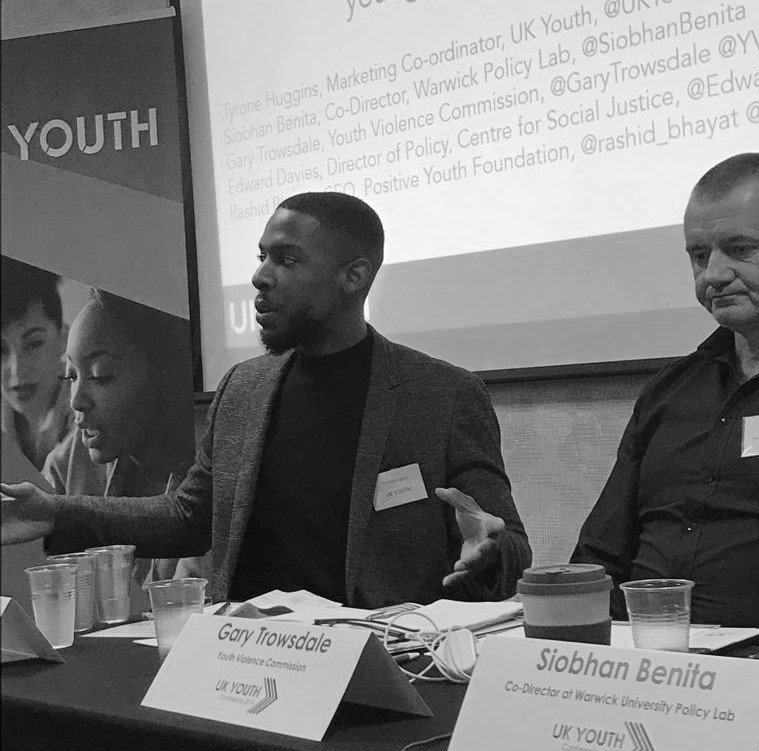#YoungAndBlack: Male Identity – Tyrone Huggins
3 November 2020
- Blog
- Young People

Growing up young and Black. Where can I start? My earliest memories of childhood were positive ones. I grew up in Brixton, in a single-parent household and although my father wasn’t around I felt my mother always provided enough for me not to feel inadequate. I was always told I could achieve anything I put my mind to in life, so this was a mind-set I adopted from early on. But as a child stepping outside the home, it became evident that the world around me was a completely different reality.
Growing up Black meant being sent to the shop and having a shopkeeper track your every move as if to say you were a convicted thief. Growing up Black was walking with my hoodie up and having white people cross the road with the idea that you were a ‘thug’. Growing up Black was being stopped and searched from as young as 15 on the way to school. Back then I think out of ignorance I viewed a lot of these experiences as normal. Crazy right? But it wasn’t until I became a teenager when I realised just how much the odds were stacked against me and how much prejudice I would face purely because of the colour of my skin.
Fast forward to my early 20s and growing up Black felt almost like having imposter syndrome. I developed PTSD from police after being assaulted, racially profiled and aggressively stopped and searched on countless occasions. I can vividly remember the first time I experienced police brutality – at university of all places. Picture a young vibrant student, black and educated – ambushed to the ground and arrested by ‘mistaken identity’ for an offence he didn’t commit. The irony of having my head thrust into the ground hearing “you black c***” whispered in my ear remains prevalent. See in them realising my innocence and me vocalising my rights, I became an even bigger threat which they found reason to justify by provoking a reaction.
Fast forward to the present and growing up Black now is me having to explain to a new employer why I have a charge like ‘resist of arrest’ to my name…over why I have a first-class degree. Growing up Black is me feeling like I have to ‘code switch’ or water down my personality just to fit into the workplace and not be seen as ‘intimidating’ around my white peers. It’s that constant reminder that I have to work three times as hard as my counterparts to get a promotion and ten times as hard to shake off the stereotype I was born into without a choice. At times it can feel overwhelming and exhausting, but as much as I realise the system wasn’t built for someone who looks like me – I believe we are now in a time where we have the power to control our own narrative and break down these barriers. As seen with the tragic death of George Floyd and the consequential awakening of the #BlackLivesMatter movement, now is the time to raise awareness of the struggles associated with the ‘Black male identity.’
So what are the solutions?
I think the first step in moving forward is self-education. First and foremost our white counterparts must understand and recognise that in a racist society where white privilege exists, being ‘non-racist’ is not enough and choosing not to take an active stand in abolishing it means you are part of the problem. I also think in the Black community we need to work towards changing the one-dimensional narrative of ‘Black masculinity.’ Too often we over sensationalise the success stories of the ‘reformed roadman’ as if to say it is our only identity when in actuality it doesn’t even represent half the demographic of young Black boys’ experiences growing up. There is a huge proportion of overlooked successful Black men who didn’t have to become criminals first before changing their life around, and I think it is just as commendable to grow up in a disadvantaged neighbourhood with a sustained a level of determination, resilience and focus in doing things the right way. It’s time we start championing the stories of more diverse lived experiences, so young Black boys have a varied choice in who they can resonate with and look up to.
Written by Tyrone Huggins